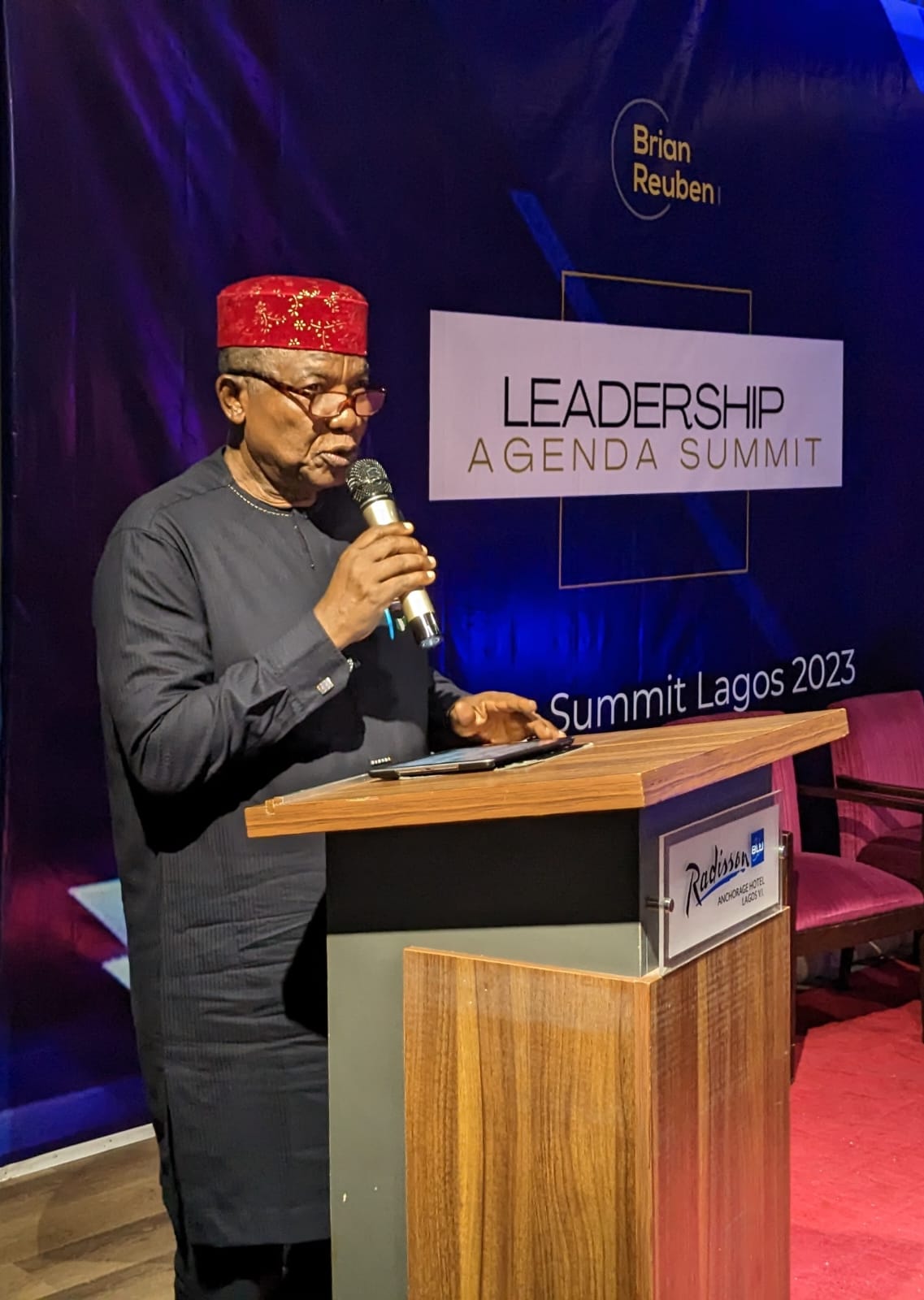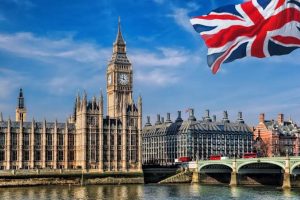
Rebuilding Social Trust in Nigeria.
Given the times we are in Nigeria today, and the palpable cry for a new Nigeria, the need to rebuild social trust between the electorate and the political actors, between the citizens and their leaders becomes very critical and very object. The social trust is broken across the nation, but it’s much more critical and pervasive in the political and governmental sectors. My question is how did we get here, was it always this way?
“Health for all by the year 2000” and by 2022 life expectancy at fifty two years remains one of the lowest in the world, while access to basic healthcare remains 30% by the year 2010, and by 2023 the multi dimensional poverty in Nigeria climbed to about 65% leaving 130 million Nigerians in the cold.
“Electricity for all,” “Water for all,” and after trillion of naira have been spent, many Nigerian households do not have upto 6 hours of electricity per day, and many depend on well, pure water for their water supply. At every election circle, politicians seeking office promise heaven on earth, but are often only able to deliver hell.
In all aspects of the human development index, Nigeria is lagging behind progressively. There is want and poverty everywhere except in houses among the political class. This is why most of the Nigerian electorates now demand that their votes be bought, because for many, that’s the only democratic dividends they may ever have, while many others are reluctant to vote at all, as they believe their votes will not count.
Even in the private and non governmental sectors, we seem to have bred leaders that wine and dine with political leaders that sometimes the difference is no longer clear; there is greater dependence of the private sector on government, that the leadership affliction of the political and non governmental sectors seem to perfuse into the private sector.
All of you know, that most of the corruption in governmental Nigeria is mediated by the private sector, broken policies, lacklustre governance and endemic private sector corruption over many years and over many years of election circles have created such a more social trust deficit between the citizens and leaders in Nigeria, and I dare say in Africa.
The story is not remarkably different in Zimbabwe, Somalia, Niger, Uganda, DRC, Burkina Faso, the Gambia, Ethiopia, Kenya and South Africa; we hear about the same level of corruption in governance and even in non-governmental circles. Many have continued to ask why Africa seems to have leaders who do not love their people. Perhaps, with the exception of a few in the immediate post-independent Africa, like Nnamdi Azikiwe, Kwame Nkrumah, Jomo Kenyatta, Obafemi Awolowo, Tafawa Balewa and Nelson Mandela etc.
Africa has largely condemned the very poor political leadership. Perhaps also, the military incursion into the political leadership in Africa soon after independence and for a fairly long time in many countries contributed to the emergence of leaders without soul or conscience.
We have repressive leaders who want to recycle or perpetuate themselves in office, whose only agenda is to grow their wealth and dispense so much to their cronies. Many of those leaders have no vision at all, lack character, oftentimes taking their citizens to a lower level of quality of live than they met them, even after several seasons of political promises. We just arrived at a junction today, where citizens don’t trust political leaders and even non-governmental leaders.
In our communities, the traditional and even the religious leaders have lost most of the trust of their constituents and adherents, because of loss of leadership values. Some community leaders and religious leaders now engage in fraudulent activities against their subjects; this is why loss of social trust in our country has done so much damage to the country, and could do even worse, so much so that people are suspicious of whatever the government wants to do, including doubting or rejecting measures to protect their health like vaccination or even birth control, any program backed by government is treated with suspicious.
TEN MEASURES FOR REBUILDING SOCIAL TRUST IN NIGERIA?
So the thrust is how do we build the social trust in our country? I believe that the 2023 election and the informed political scene offers Nigeria a great opportunity to begin to rebuild the social trust. And if we want to see Nigeria changed, and her citizens begin to trust their leaders again, then;
- Let Their Votes Count.
If Nigerians see that their votes can count, then we’ll begin to see a reversal and resuscitation of some trust in what leaders have to say.
- Let Leaders Put Their Promises Forward Or Explain Why Enough To The People.
You can not be making promises, “we shall restructure the country.” Then you come and you don’t ever speak about restructuring. “We shall take away the subsidy” and then you postponed it to the next regime. What kind of smart method of governance? I mean the deceit is quite apparent, for eight years you could not do what you said you wanted to do, and then you want us to clap for you?
- Leaders Should Have Right Values And Hold Themselves Accountable.
Let them have right values, have the right vision, have the right character, have the right integrity and sacrifice and hold themselves accountable. When leaders do not have the right values, when they do not have the right vision, when their character is tinted and suspicious, when they lack integrity, honesty of purpose, when they cannot make sacrifices and cannot hold themselves accountable, there is no way anybody would trust you, they become predators and lords who conquer by force or ability to bribe their ways or to coerce people to win
- Make The Improvement Or Quality Of Lives Main Goal.
Let our political leaders make the improvement or quality of the lives of citizens their main goal and focus; that for me is the whole essence of political leadership. You meet a set of people called citizens at a particular level of quality of life measured in different ways (What is their per capita income? What is their life expectancy? What is their energy consumption? etc). After four years, you should say, when I came to power this was the level of poverty, this was the level of unemployment, and then show you have improved life, not bridges, not flyovers, because those flyovers and bridges count to nothing, if the quality of life of the people are not improved.
I went to one state in Nigeria, I think they have the largest number of flyovers and I stopped in one of the flyovers to see the number of vehicles passing, like three vehicles per hour, and I can’t see how that improves anybody’s life. In fact, in one of the flyovers, I didn’t see any car in one hour. I went to a shopping mall and I didn’t see people shopping. I said, maybe this man (governor) is being futuristic. But let’s survive now first.
Also, let our non-governmental leaders, private sector leaders share dividends of success with employees and other stakeholders; not seeking to maximize their bonuses and their own dividends while they don’t care what the employees, what the environment, or what the communities take away. Private sector people bend laws, bend rules and do all manner of things, and we stand and criticize politicians when actually we are the ones that instigate corruption.
- Leaders Should Live Among The People.
You know many of Nigeria’s leaders are aliens; they don’t live with us, their children do not go to the same school our children go to, their wives do not go to the same market, we don’t travel on the same road.
When I was running for office during the primaries. One day I met one of the aspirants and he asked me, “Where are you coming from?” “From Jos” I replied. “Are you going back to Lagos?” he quickly enquired. I said, “No, I am going to Minna.” Then he said, “How do you go?” I said, “I go by road, of course.” His response was, “This dangerous road?” I said, “Yes, sir. Is the same road the citizens we want to govern use. We need to know what they see and confront.”
So my point is, when you come down to people’s level, they trust you, but when they are looking up to you, they don’t trust you, because they’re psychologically disoriented. If they see you as they look up, they won’t even know what to say, but when you are at their level, then they can tell you how they feel and that way, you can build trust.
- Let Us As Leaders Practice Servant Leadership.
The principle of servant leadership is what we need to use in rebuilding trust. Rather than waiting to be served, we go to serve. Very often, you want to do a thing among your team members, they run to you and say, no let’s do it, and they show appreciation that you are even willing to do it. A very simple gesture to build trust, to make people know that you have a feeling like they too, you know that, whether you are a servant or leader, is a matter of opportunity.
- Let The Lives Of Ordinary Citizens Count.
Let’s see the respect of leaders in all sectors, let us learn to respect people. When I was working far away back, when my CEO was walking down the stairs, everybody ran away, nobody dared walk up the stairs. But when I became CEO, when people are coming, I wait for them to pass. Why are they waiting for me? When I see people, I stop and they walk through, then I go my way. You honor them and what you get in return is greater honor, greater respect and trust.
So let us treat our subjects, our subordinates, our colleagues, or stakeholders, with this same respect. What you sow, is what you reap. So what you desire is what you should give, the more you give, the more you get back.
- Let Them Give Equitable And Fair Opportunities Raw.
Take away discrimination, focus on measurable criteria, competence and merit. When I was growing up in my work life, one of these guys said, sir come, you know I don’t like your name, but I like your work, and I said sir, manage my work, “no bi me give myself name na.” So let’s forget about which name people answer, and focus on what they can produce, and focus on merit. If people see that you discriminate against them, how would they trust you?
- Stop ‘Weaponizing’ Poverty.
We have weaponized poverty to the extent that the people are completely disenfranchised and today, what matters to them is how do we survive. When I went to run for office, I knew there were three major things that influence political success in Nigeria or voting behavior or what I called political culture. I knew ethnicity was one, I knew religion was two, and I knew money was third. I also knew that if you have enough money, that money can override religion and ethnicity, but when we went, we thought we could bring a fourth factor which is competence, character and vision. Since I knew I didn’t have money to override religion and ethnicity, I thought we could bring that, but my experience is that it didn’t count. It was completely discounted by those who were involved in the primaries, the delegates discounted character, competence, and vision; it didn’t mean anything to them. In fact the major differentiating characteristic was money.
- Finally, Let Our Leaders Demonstrate True Fear Of God And Love For Humanity.
We are a religious nation, people talk about God, but their hearts are far away from that God. I was in a church sometime and that day, the church was so blessed and people were speaking in tongues and there was so much presence of the Holy Spirit. We came out from the church, and I parked my car in the wrong place. I was in a hurry to go to the church, I was almost falling into a ditch, when I came out of the church and want to veer myself out, I was begging these my congregants who were shouting and raising hands, please let me go, and I said to myself, is this the same people that were falling under anointing. Let us, especially the leaders since water flow from the top to down, be a people that demonstrate true fear of God and love for humanity.
My point this morning is that if we can implement the above measures or more over the next couple of years, maybe in the next four years, the trust deficit will be likely reduced, and if we can sustain it for another four years or so of consistent and ethical standard leadership, the social trust will be fully reconstructed.
Mazi(Dr) Sam Ohuabunwa is the founder of the New Nigeria Group and former Presidential Aspirant in the last Nigerian election



